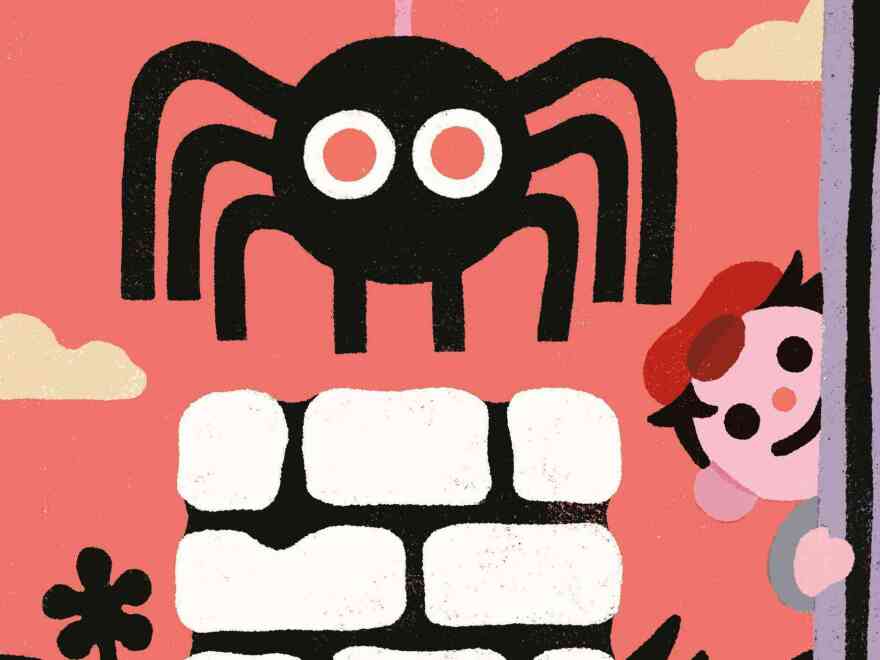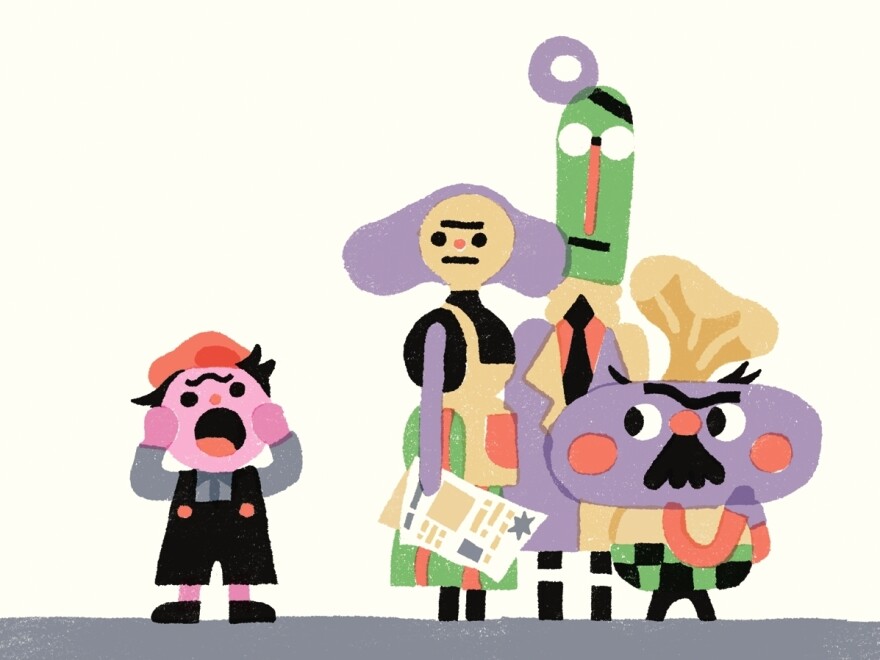Once upon a time, in the folkloric town of Bad Göodsburg, which is probably in Germany, there was an overworked newsboy.
Not only did he bring the people their daily news, he also swept their chimneys, shined their shoes, and brought them their milk.
He was overworked, and underappreciated.
So, when the townspeople discover that their wishing well is broken, the newsboy sets off to fix it — and get some revenge. Thus begins this children's tale of extortion, labor rights, and justice.
Author and illustrator Jess Hannigan spoke about her debut picture book, Spider in the Well, with NPR's Tamara Keith. Here are excerpts from that conversation, edited in parts for clarity and length.

Interview highlights
Tamara Keith: How did you come to write a book about a spider, when I understand that you are afraid of spiders?
Jess Hannigan: I am. I don't care for them. But do I love the webs they spin? Yes. Do I love the spooky aesthetic? Of course. Basically, the whole story came about because I really just had the image of looking down a well with the web, with the spider in it, and I thought that would look cool. And then I kind of asked myself, like, 'Is there a story here? Why is he in there? What's he catching in the web?' And it kind of just wrote itself from there.
Keith: Is everyone in Bad Göodsburg a little bit bad and a little bit good? Or are all people a little bit bad and a little bit good?
Hannigan: Well it's supposed to be, you know, real life. I really like when a character is in a gray area with some good and some bad because it's realistic and relatable. And we have heroes and we have "villains," but they're just like us. And that way they're humanized. And you just get to kind of discuss who you side with, who you agree with.
Keith: How would you describe what this book looks like?
Hannigan: I did the whole thing completely digitally. I kind of was going for a sort of imperfect printmaking effect because I love the look of block printing, but I don't have the patience. So this was kind of a happy medium of me achieving that kind of folkloric, old-timey printing look without any of the labor.

Keith: Where did you draw your inspiration for the art? The colors are not colors that you traditionally see in a children's book. It's like black and hot orange and purple.
Hannigan: A lot of my inspiration for the kind of shapes that I use comes from like, Polish posters. They're from the 1960s and '70s — Polish poster design was crazy and they had the wackiest shapes and colors, and I was introduced to those back in college.
These were just the colors that I had been obsessed with at the time that I happened to be making the book. They are like these kind of sickly, weird tones. And I used all those purples and greens for the "bad guys" because I guess it suited their vibe. But I'm actually colorblind, very slightly. So everyone's been telling me this book is such a lovely shade of orange and I've been telling everyone it's red.
Keith: What lesson do you want the kids who are reading this book — or who are reading it with their parents — what do you want them to take away from it?
Hannigan: I didn't go into making this story with a lesson in mind. I know books with morals are important and they have a place for sure. But really I just wanted to make people laugh. And to go back and read it again and think, 'What the heck was this guy even doing? Where did they learn how to do blackmail? Who taught them about extortion and labor rights and things?'
I love stories like that, that just make you wonder more about them.
Copyright 2024 NPR




